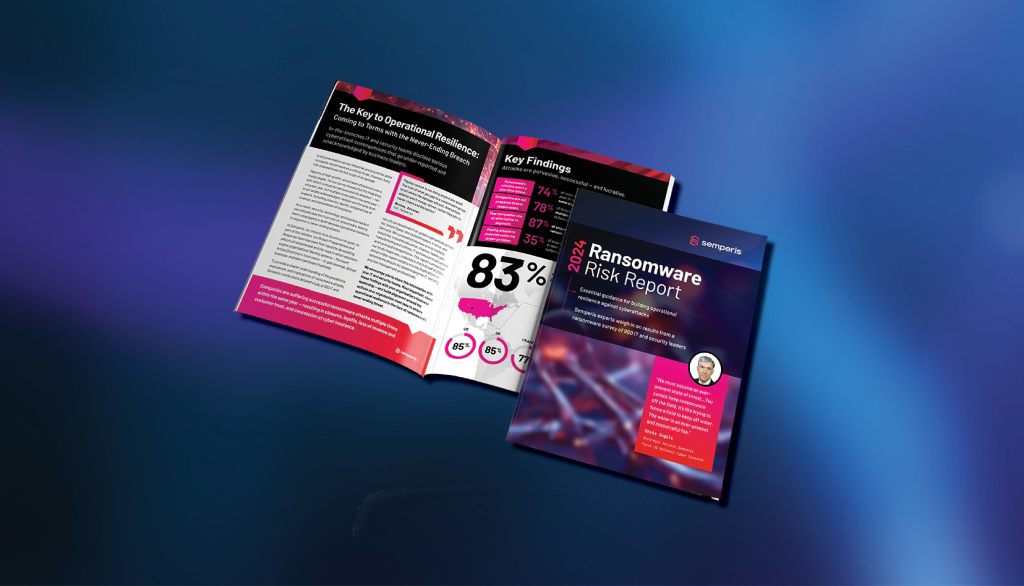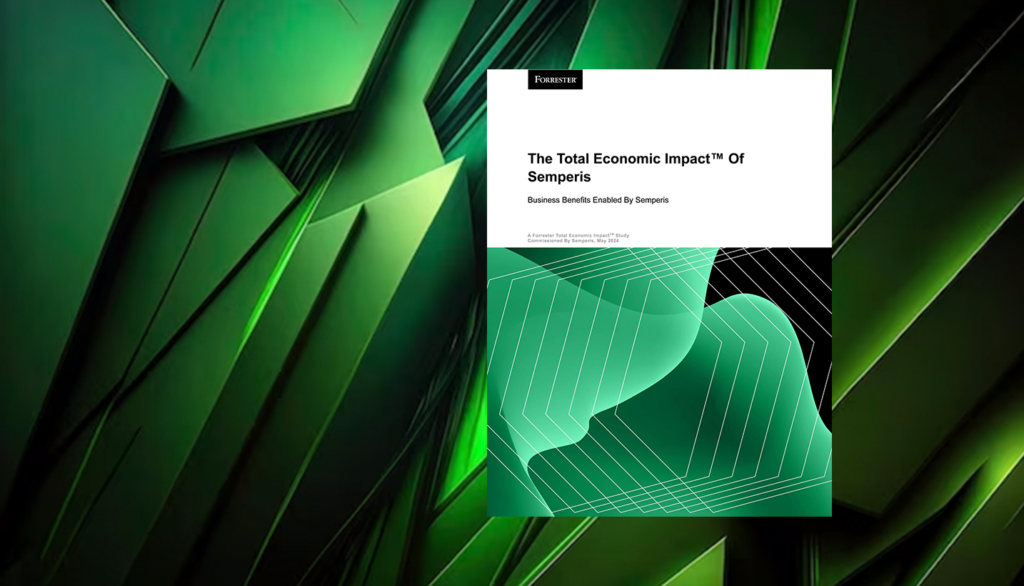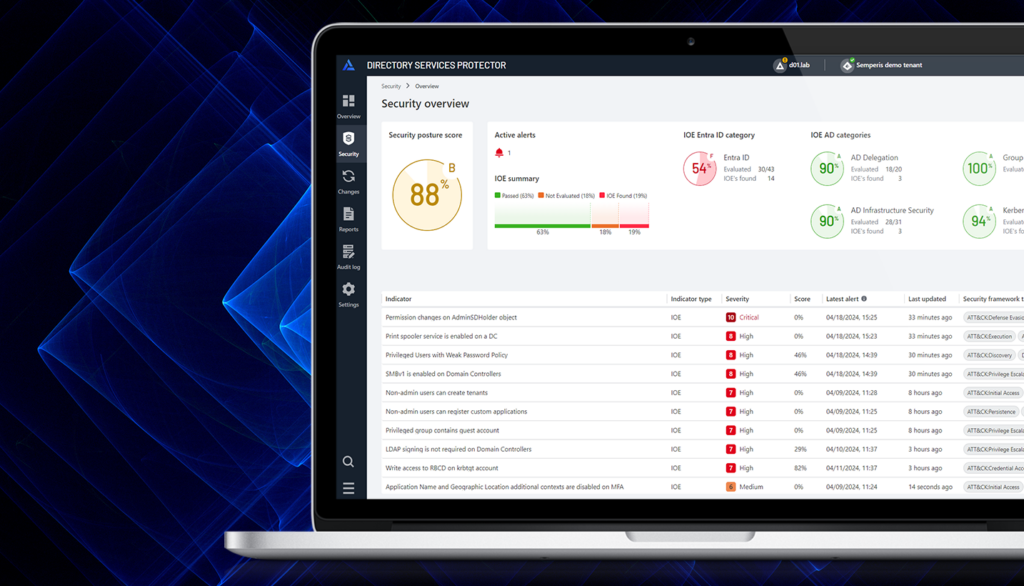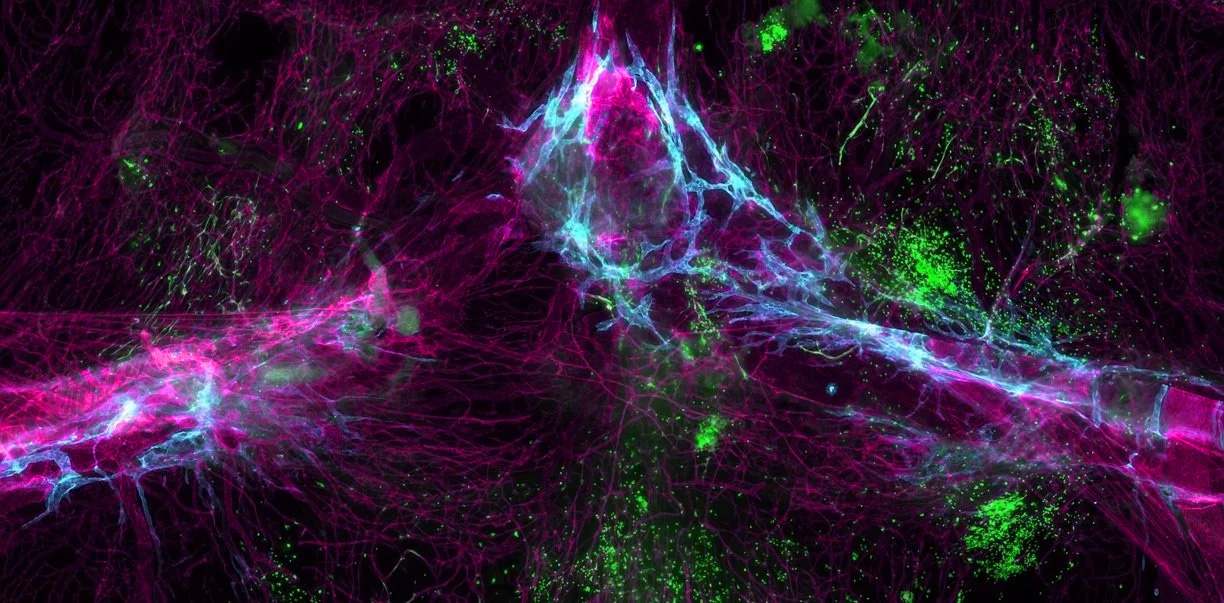Identity Threat Detection & Response
Categories
- Active Directory Backup & Recovery (63)
- Active Directory Security (214)
- AD Security 101 (17)
- Community Tools (19)
- Directory Modernization (9)
- From the Front Lines (69)
- Hybrid Identity Protection (68)
- Identity Attack Catalog (29)
- Identity Threat Detection & Response (143)
- Our Mission: Be a Force for Good (14)
- Purple Knight (5)
- Semperis University (1)
- The CISO's Perspective (16)
- Threat Research (68)

Strengthening Cyber Incident Response with Forest Druid
- Huy Kha | Senior Identity & Security Architect
Forest Druid is a free cyber attack path discovery tool for hybrid identity environments, such as Active Directory and Entra ID. Unlike traditional tools that map attack paths from the external perimeter inwards, Forest Druid focuses on protecting the most critical assets first. This method prioritizes identifying and securing Tier…

New Ransomware Statistics Reveal Increased Need for Active Directory Security and Resilience
- Mickey Bresman
By now, we’re all familiar with the need for an “assume breach” mindset where ransomware and other cyber threats are concerned. To better understand the necessity and challenges of this approach, we partnered with international market research firm Censuswide to ask organizations about their experience with ransomware attacks. What we…

Active Directory ACL Management: The Importance of Tiered Delegation
- Daniel Petri | Senior Training Manager
Active Directory (AD) plays a critical role as the primary identity provider for numerous organizations throughout the world, forming the backbone of access control and authentication systems. This also makes the Active Directory Environment a prime target for cyberattacks, however. A threat actor gaining control of your Active Directory can…

DORA Compliance and ITDR
- Daniel Lattimer | Area Vice President - EMEA West
Organisations in the financial services sector in the European Union (EU) have less than a year to demonstrate Digital Operational Resilience Act (DORA) compliance. What is DORA, does it apply to your organisation, and how does DORA compliance intersect with one of today’s major cybersecurity concerns: identity threat detection and…

New Forrester TEI Report: Semperis Slashes Downtime by 90%, Saving Customers Millions
- Sean Deuby | Principal Technologist
How long could your organization go without access to applications and services because of an identity-related cyberattack? That’s the question we often ask security and IT ops leaders when we’re discussing the importance of protecting Active Directory and Entra ID from threat actors. The question seems hypothetical because it assumes…

How to Defend Against SID History Injection
- Daniel Petri | Senior Training Manager
Security Identifier (SID) History injection is a sophisticated cyberattack vector that targets Windows Active Directory environments. This attack exploits the SID History attribute, which is intended to maintain user access rights during migrations from one domain to another. By injecting malicious SID values into this attribute, an attacker can escalate…

Semperis DSP: Enhance AD and Entra ID Protection from Cyber Threats
- Eitan Bloch | Semperis Product Manager
The SolarWinds breach in December 2020 signified a shift in the attack path for threat actors. Cyber threats increasingly target organizations' cloud environments, typically Microsoft Entra ID (formerly Azure AD), then move to on-premises Active Directory (AD)—or vice versa. This begs the question: How secure is your hybrid identity environment…

LDAP Injection Attack Defense: AD Security 101
- Daniel Petri | Senior Training Manager
LDAP injection represents a formidable cyberattack vector, targeting the authentication and authorization mechanisms within your Active Directory environment. By exploiting improper input validation, attackers can manipulate LDAP statements and potentially gain unauthorized access to your directory service. Semperis cybersecurity and identity security experts have a deep understanding of LDAP injection,…



